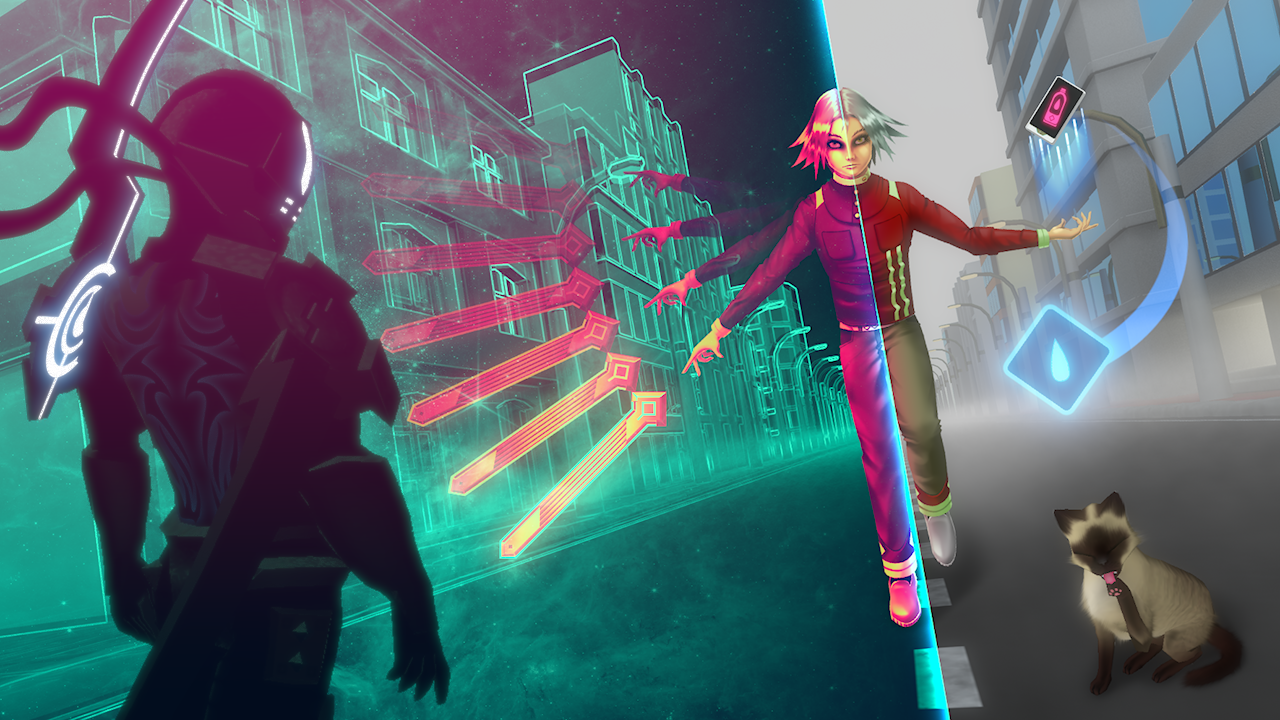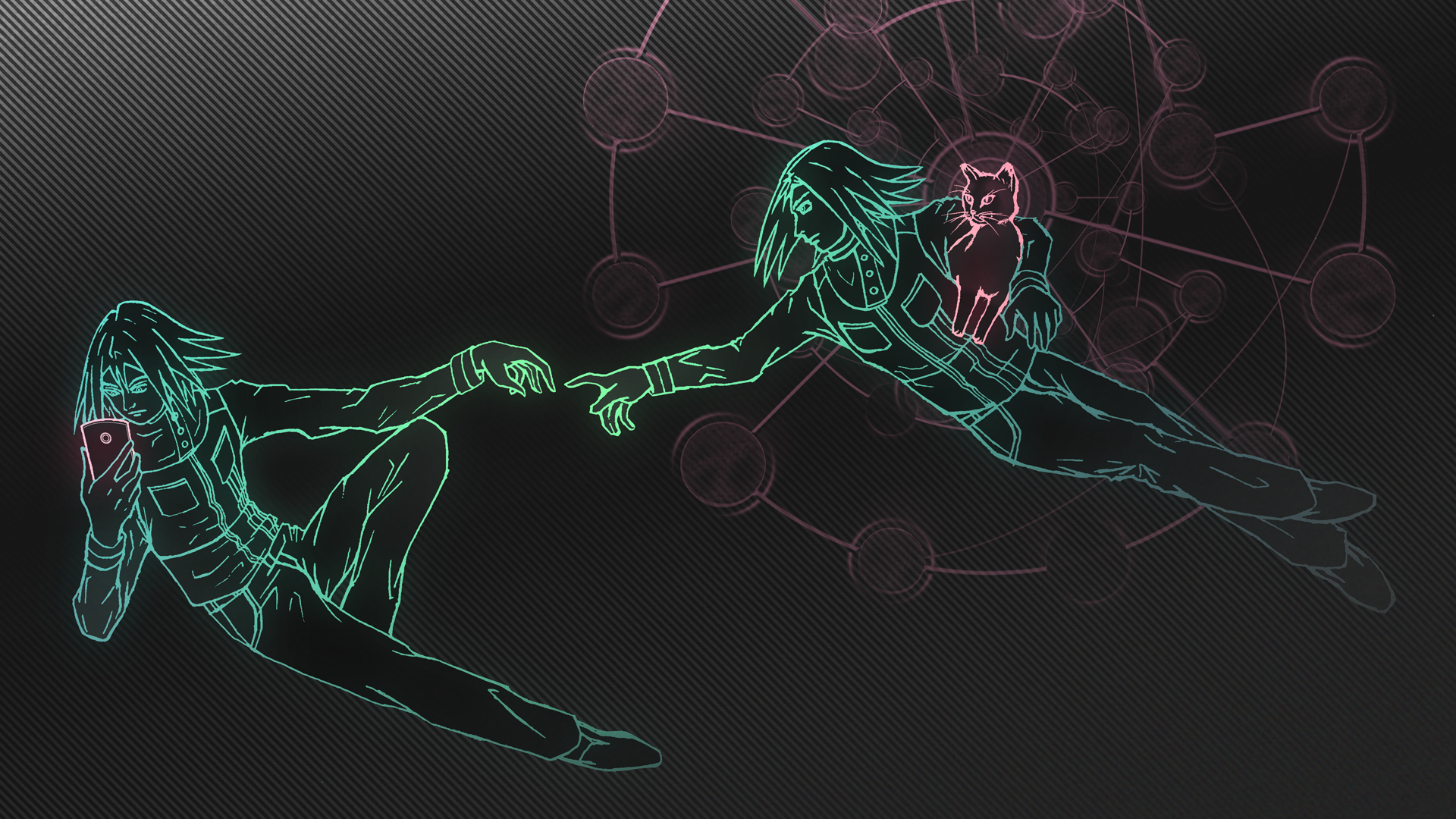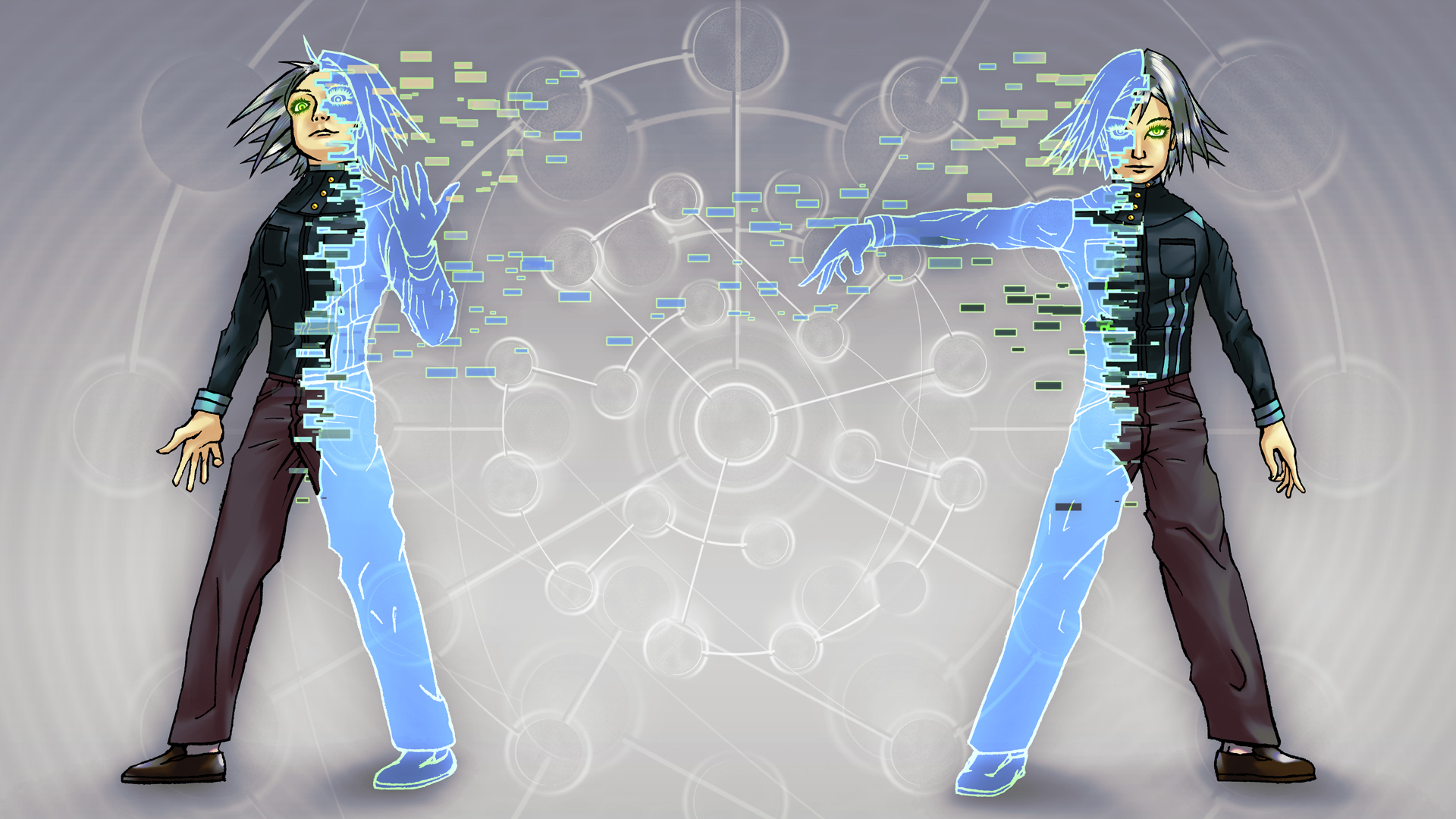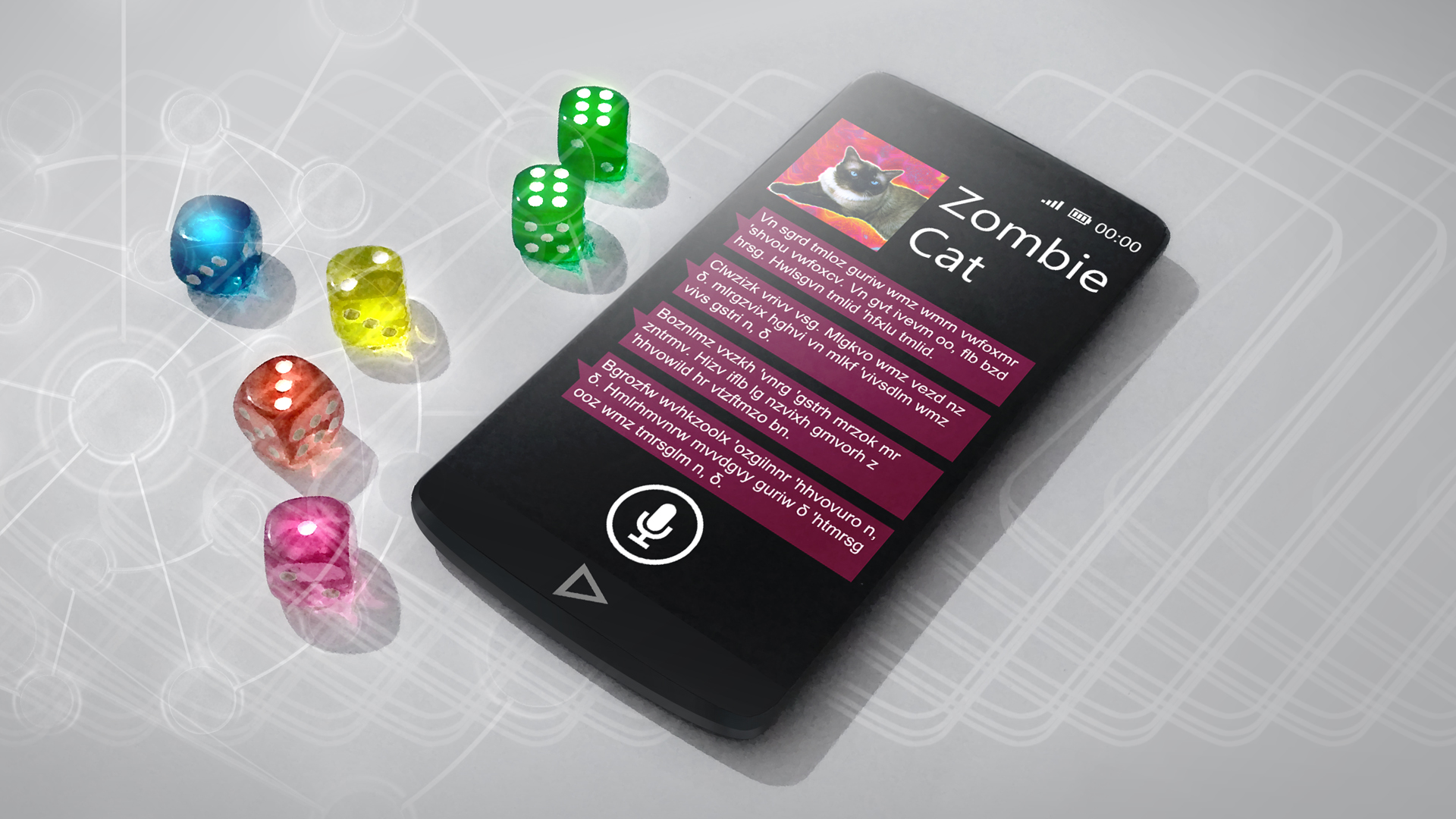



Title: Quantumleaper
Genre: Action Puzzle-Platformer
Developer: Elias Sant'Ana
Platform: PC
Release: November 29th, 2019
Social: Twitter
Website: https://quantumleaper.santanagames.com/
Press Contact: elias@santanagames.com
In Quantumleaper, you’ll play as Alexander Schrödinger and use your Superposition ability to solve puzzles that would be otherwise impossible to complete. Duplicate your position with a single button and press it again to switch between your two selves at any time, no matter how far.
You can use your other self to activate switches, mislead enemies and block projectiles. Sometimes, even tunnel through walls. As you progress, new components will require you to find new ways to advance – using both intelligence and skill through a huge maze filled with deadly puzzles.
Throughout your journey, you will gather clues that will help you understand the true nature of the experiment.
Soon, you will meet the Spooky Agents, enemies that can control quantum fields and manipulate the forces of nature.
Though intelligent, they didn't expect a human being to be in the experiment and now they see Alexander as a source of contamination that must be eliminated.
And you take care of all these issues while being assisted by Zombie Cat, an illiterate kitten that communicates with you through a cellphone.
Like the theories that served as inspiration for it, Quantumleaper is a game about duality: sometimes you will be able to take your time to solve a puzzle, sometimes you will be expected to fight and act fast.
You have two simultaneous health systems: a percentual HP, that will be affected by enemy damage, and hearts, that are taken away by lethal hits. It's possible to die through one system but stay alive with the other, causing Alexander to split into a dead version and a living one.
This duality is also present in the artistic elements. The music is a mix of classic piano and synthetic tunes. The graphics combine 2D gameplay and 3D environments (a combination that is sometimes used to bend the rules in unexpected ways).
Story-wise, Alexander always expects the worst of any situation that is out of his control. At the same time, he is always optimistic about the options he's left with.
Zombie Cat is concerned about their friendship and, yet, he doesn't care about forcing Alexander into dangerous tests.
He plays the role of a guiding companion, but his explanations are often incomplete or misleading, subverting the role of a typical tutorial pop-up character.
Elias Sant'Ana is a solo indie game developer. He's also the one writing this, so I'm going to stop talking in the third person now if you don't mind. Trying to be impersonal in this section would be a futile effort.
I've been programming since about 2001. Quantumleaper is actually my third game. The other two are breakout clones, Dark Ball (2004) and Dark Ball 2 (2010). But those weren't projects that demanded full time dedication as this one.
The production of Quantumleaper goes back to 2010, when I first had the idea for it while listening to the song that now shares its title with it.
In the next few months, the first prototype was written and most of the soundtrack was composed, but that was also when I got a formal job.
From 2010 to 2015 I worked for an outsourcing company, putting a halt to my personal projects.
In 2015 I quit my job, building Quantumleaper became my only activity. Four years later, it was done. It took this long mainly because I didn't impose time restrictions, the whole game was planned out early and I stuck to it to the very end.
In its initial release Quantumleaper was criticized for its difficulty and lack of visual identity. Although I was very rigorous in selecting puzzles, structuring levels in a varied way and introducing new elements in each of them, it was all for nothing as the majority of players would find the second level too hard. I couldn't stand for its visuals either, every complaint was correct, there is nothing to be said about that.
Now, this is the sort of thing that is bound to happen when you have no external input. And when I say no input, I really mean it. Not a single person besides me saw the game until it was done. I knew the importance of game testers, but I didn't have them and, while I was capable of creating unit tests and writting a clean and robust code by myself, I was not able to balance the game - mainly its combat - in a satisfiable way.
"When you put so much effort in something, you can't just throw it away."
Ironically, this line is in one of the dialogs in the game. And about something that should definitely be thrown away, nonetheless. Fortunately, the development of this game is not a tale about the sunken cost fallacy.
By February 2020 I had taken Quantumleaper to some small events and gathered enough feedback to list everything that should be improved. It was a long list. I have divided the players in archetypes and that helped me figure out what I could do to appeal to each of them. They were:
The Birthday Kid: "Where are my presents?". These players were the most common. They wanted some sort of in game reward. Collectibles, weapons, new attacks, anything. Interestingly, it didn't have to be immediate. Some of them would ask if they could earn new things later on. I guess some people really don't mind if their gift comes late. But they still want it, whatever it is.
The Sad Turtle: these players were also frequent. They'd have a hard time in action segments and feel frustrated or even wronged when they died. Unlike Birthday Kids, they don't expect to earn something to turn the tides in their favor, they think they should already own it.
The Lone Wolf: these players were rare. They'd frequently stop to think while holding the controller with one hand. They don't like hints and will usually be explicit about not needing them when they take too long to solve a puzzle. They can vary in combat skills but either way, they play without questioning wether the game is fair or not.
The Regular Dog: they look like Lone Wolves until they get stuck. Then they will ask for a hint. But just a teeny tiny hint, they still want to feel they've solved the puzzle by themselves. When they bring a friend, they'll accept their help, it's all fair game since none of them know the answer.
The Disapproving Seal: "Well, well, look at that ugly indie game. Pass.". I can't know for sure how many of these players there were, but I've spotted a few who would do just that, take a look, refuse the controller when you offered them and leave me with a seal of disapproval.
As you can see, some archetypes deal with puzzles and others with action. And one with presents. So, yes, you can expect an overlap, there were Birthday Turtles, Sad Dogs and even a Self-Praising Rabbit, who would go on and on about how his game was made quickly and was still a technical wonder (you know, unlike mine).
Anyway, these players made me go back to the drawing board and think of ways to make Quantumleaper more appealing. That was how Strand of Divisions was born. I spent months planning how to fix all the gameplay issues without just introducing disjointed elements here and there. Meanwhile, I began testing with new shading algorithms, leaning more towards a realistic rendering as opposed to the flat PS1-esque polygons.
It didn't take long to realise there was no way to improve the graphics that didn't involve throwing most of what was done in the trash. So that's what I did. I knew it would take a very long time to translate so many sprites into 3D models, create new texture maps and write new shaders. At this point, due to the pandemic, I was isolated in my now lost apartment. I had enough time so I dedicated it all to it (you have no idea how a Disapproving Seal can make you sensitive about your own work).
While I was recreating the graphics, I kept planning how to improve the gameplay. The Strands were a jack of all trades solution, they filled the reward gap, made combat more engaging and made room for a new hint system. Even the old power up system got merged with it. In fact, it proved to be such a flexible solution that some unplanned functionalities made it to the final release (How else would I let players save the game anywhere at this point?).
Finally, the levels were revised, many of the harder puzzles became optional and are now keeping some of the new Strands. Of course, some of them are hidden in plain sight for Birthday Kids and many strong options are available early for the Sad Turtles.
When I say it all like that it may sound like I think I found a perfectly elegant solution to a very complex game balance problem. I don't. If you are an Attentive Squirrel, you may have noticed that the fundamental imbalance in Quantumleaper lies in its hybrid genre and there is simply no way to "fix it". There will always be some people who will view the combat as an unnecessary challenge mixed with the puzzles and others who will consider the puzzles a nuisance. I've made a game for those in the intersection of tastes. That's the sort of thing that rarely sells well, but I'm a just a Passionate Fox.
I was a gamer in the 90's and that is probably the main reason Quantumleaper was so challenging at first. However, I didn't want to emulate the frustrating experience of old games. I began everything with a simple mechanic in mind and focused on making its versatility shine through puzzle solving. It took a little longer to realize how that could be also integrated with the action elements.
My goal was, and still is, to create a game in which answers aren't just spilled out, so that players can feel truly accomplished when they make progress. At the same time, I want them to feel that they can evolve and dominate an otherwise oppressive world.
Duality is, indeed, a recurring theme also outside the game. I find it very unlikely that anyone will read this, but I also want to let everyone know how I feel. I feel accomplished but I feel unsuccessful. After so many years working on this project, I really wish I could start making another game right now, but I don't think I can go through this arduous and lonely process again.
There is no conclusion here, this story is left open






© 2019 ELIAS ALMEIDA SANT'ANA DO VALLE